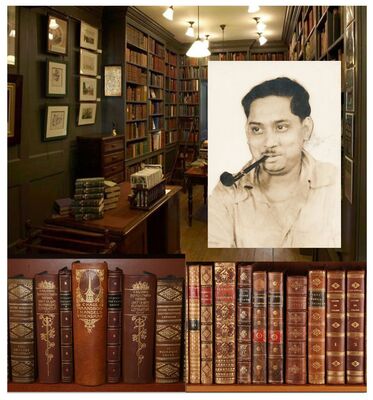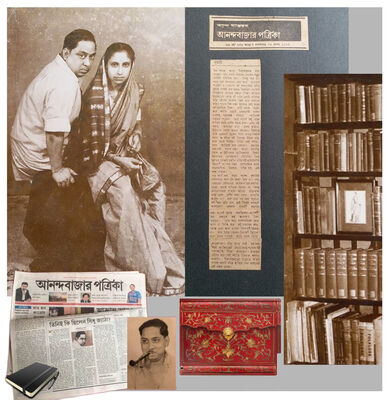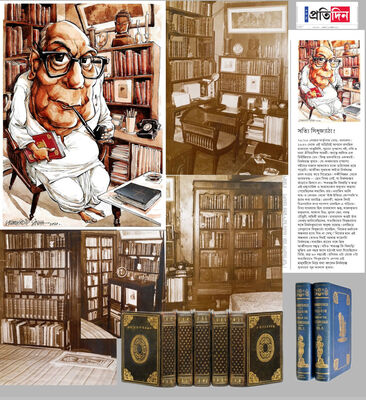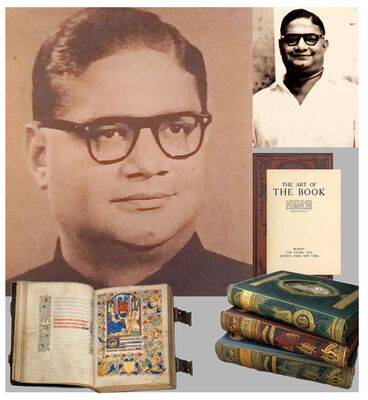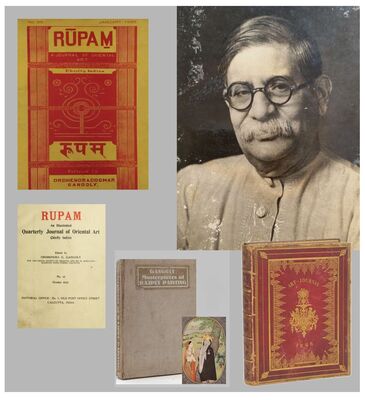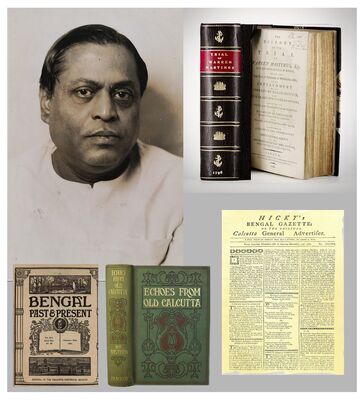Nirmal Chandra Kumar's Contributions
The contribution of an extraordinary man who was an antiquarian. Nirmal Chandra Kumar, the antiquarian, has been compared to Satyajit Ray’s fictional character ShidhuJyatha. R P Gupta in his writing has mentioned that Satyajit Ray modelled the character on my father who had an encyclopaedic knowledge on many subjects. History, Art, Archaeology, Ornithology, Botany, Travel, Wildlife, Religion, Anthropology, Linguistic and many more. His vast knowledge came from his collection of books which he housed in a well-appointed library at his home in Taltala. Moreover, he was in the habit of collecting newspaper cutting which he kept in Journals.
But no description fits him as well as that published in The Telegraph recently: ShidhuJyatha revulsion to leave home. ShidhuJyatha grouse lies elsewhere: that people wish to travel in the first place. For Shidhujyatha is the foremost, albeit fictional, advocate of the concept of manas bhraman, armchair travel. In Sonar Kella, the film, not the text, he tells Felu and Topshe that even though he could have done many things, he chose to do nothing; instead, he sits, motionless, with the proverbial windows to his soul open to let in light and air. This description fits my father so well and no one else whom I know.
In fact, for long, I did not know what my father did for a living. The whole day he would spend time in his library rummaging through antique books, maps and prints and then just sit smoking his pipe doing nothing. In the afternoon he would take a siesta, get up to paste newspaper cuttings in thick bound volumes which he called 'guard books'. In fact it is this habit of collecting newspaper cuttings that drew him to a Scrap Book on the Mutiny of 1857 which came up in an auction in Sotheby’s. He bid for the book and purchased it paying a handsome amount of £100, quite a high price in those days, for his friend Satyajit Ray who was then planning a film on the subject, Satranj Ki Khilari. According to R.P.Gupta, a close friend, Ray did not forget this gesture and also the fact that Kumar had always helped him with books and innumerable information and facts, and paid him his biggest personal tribute. He based one of his characters in his story book series on Feluda, the detective, etched on Kumar. R.P comments that the character Shidhujyatha (Sidhuuncle) in the Feluda series, with an encyclopaedic knowledge immortalizes Kumar, who had a vast knowledge on many subjects. Incidentally, in his book, Stan Kal Patra, both Kumar and SidhuJaytha has been compared with another well-known Bibliophile, none other than Jorge Luis Borges.
My father, Shidhujyatha would have certainly found a kindred spirit in Immanuel Kant. The philosopher was never spotted too far away from his birthplace, Königsberg; he insisted that he had no time for travel since there was so much to learn , seated, about the world. This League of Anti-travellers should also include Joseph Hall, the pioneer of armchair travel writing, whose satirical and dystopian Mundus Alter et idem (Another World, and Yet the Same) can be read as a vicious spoof of The Travels of Sir John Mandeville. An eighteenth-century Frenchman can also be counted as the League’s honourable patron. Xavier de Maistre, Allen de Botton writes in an engaging article in Financial Times, most recently, had locked himself up in a room to study the ‘enchanting’ objects that lay closest to him. The result of his discoveries was wonderful: A Journey Around My Room — a travelogue that involved Xavier de Maistre ‘journeying’ from the bed to the sofa.
But whatever be the guise of the traveller: crusader, seeker, king, merchant, explorer, slave-trader, empire-builder, those with roving eyes have ended up transforming, usually for the worse, the very world that they had sought to wander in. It is from his armchair that Nirmal Chandra Kumar surveyed his world of Books, Maps and Prints and contributed to the traveller of the world of knowledge – his friends.

